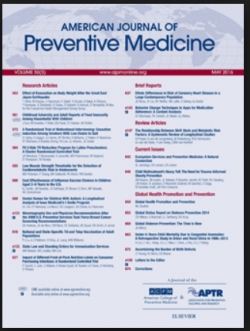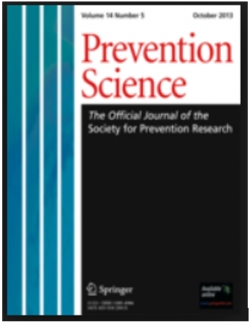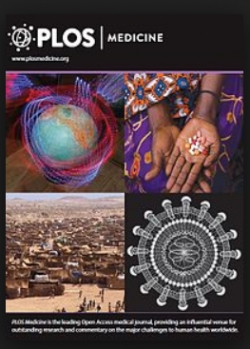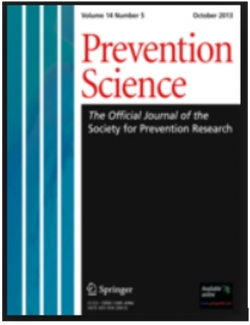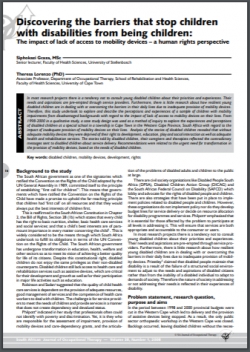Social Science & Medicine 72(1):83-90 Predictors of alcohol use prior to pregnancy recognition among township women in Cape Town, South Africa
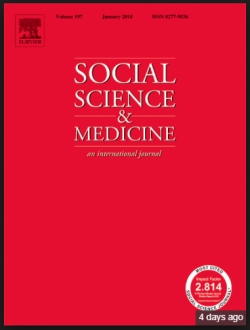
Type
E-Journal
Authors
ISSN
02779536
Category
ECCE, Preschool
[ Browse Items ]
Publisher
Elsevier, Amsterdam, Netherlands
URL
[ private ]
Pages
8 p.
Subject
Early childhood care and education (ECCE), Prenatal alcohol exposure, Risk factors, Pregnant women, Alcohol, Fecal alcohol spectrum disorder, South Africa
Tags
Series Name
Abstract
South Africa has the highest prevalence of Fetal Alcohol Spectrum Disorders (FASDs) in the world. The purpose of this study was to identify high-risk factors associated with drinking alcohol prior to pregnancy recognition in 24 neighborhoods in the Cape Flats outside Cape Town, South Africa. An interviewer assessed risk among 619 pregnant Black/African women between the ages of 18 and 41 years. Logistic regression analyses explored factors associated with drinking alcohol post-conception but prior to pregnancy recognition. Forced multiple logistic regression analysis revealed that drinking prior to pregnancy recognition was associated with being younger, single, having better living conditions, smoking, having a longer gestation prior to pregnancy recognition, having a greater number of sexual partners, and a higher incidence of intimate partner violence. Depressive symptoms tended to be higher among alcohol users. These risk factors were consistent with other research on the characteristics of South African women having children with a diagnosis of Fetal Alcohol Spectrum Disorders and/or of non-pregnant women at high risk for an alcohol-exposed pregnancy. These findings highlight the need for women of child-bearing age to be routinely screened for alcohol use and its associated risk factors. Intervention efforts could be integrated into health initiatives already present in South Africa including the prevention and treatment of HIV/AIDS, tuberculosis, and malnutrition. Preconception care is particularly important since pregnancy recognition often occurs several weeks to months following conception and could be implemented by South African community health workers. These endeavors should facilitate national goals of healthier pregnancies and the elimination of FASDs in South Africa.
Description
Article
URL directs the user to the open access version at the National Library of Medicine, Bethesda, MD. The link to Elsevier is for subscribers only.
URL directs the user to the open access version at the National Library of Medicine, Bethesda, MD. The link to Elsevier is for subscribers only.
Number of Copies
1
| Library | Accession No | Call No | Copy No | Edition | Location | Availability |
|---|---|---|---|---|---|---|
| Main | 746 | 1 | Yes |
